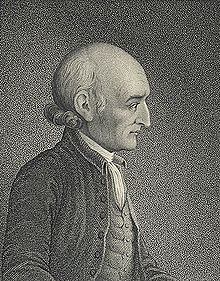George Wythe
| George Wythe | |
|---|---|
 |
|
| Born | 1726 Chesterville, Elizabeth City County, Virginia, British America |
| Died | June 8, 1806 (aged 79–80) Richmond, Virginia, U.S. |
| Resting place | St. John's Churchyard, Richmond, Virginia, U.S. |
| Known for | Signer of the United States Declaration of Independence |
| Signature | |
George Wythe (pronounced WITH) (1726 – June 8, 1806) was the first American law professor, a noted classics scholar and Virginia judge, as well as a prominent opponent of slavery. The first of the seven Virginia signatories of the United States Declaration of Independence, Wythe served as one of Virginia's representatives to the Continental Congress and the Constitutional Convention. Wythe taught and was a mentor to Thomas Jefferson, John Marshall, Henry Clay and other men who became American leaders.
Wythe was born in 1726 at Chesterville, the plantation operated by three generations of the Wythe family in what was then Elizabeth City County but is now Hampton, Virginia. His maternal great-grandfather was George Keith, a Quaker minister and early opponent of African slavery, who returned to the Church of England but was sent back as a missionary to the East Coast before ultimately returning to England. His mother, Margaret Walker of Kecoughtan, a learned woman probably raised as a Quaker, instilled a love of learning in her son. In his later years, Wythe became known for his outdated Quaker dress, as well as his gentle manner, which could cause even a surly dog to "unbend and wag his tail." After the early death of his father, Wythe probably attended grammar school in Williamsburg before beginning legal training in the office of his uncle, Stephen Dewey, in Prince George County.
Wythe was admitted to the bar in Elizabeth City County in 1746, the same year in which his mother died. He then moved to Spotsylvania County to begin legal practice in several Piedmont counties. He soon married the daughter of his mentor, Zachary Lewis. However, Ann Wythe died on August 10, 1748, about eight months after their Christmas season marriage. The childless and bereaved widower soon returned to Williamsburg. There, Wythe made law and scholarship his life, as he began what would become a distinguished career in public service. His motto was "Secundis dubiisque rectus", translated as "Upright in prosperity and perils."
...
Wikipedia
